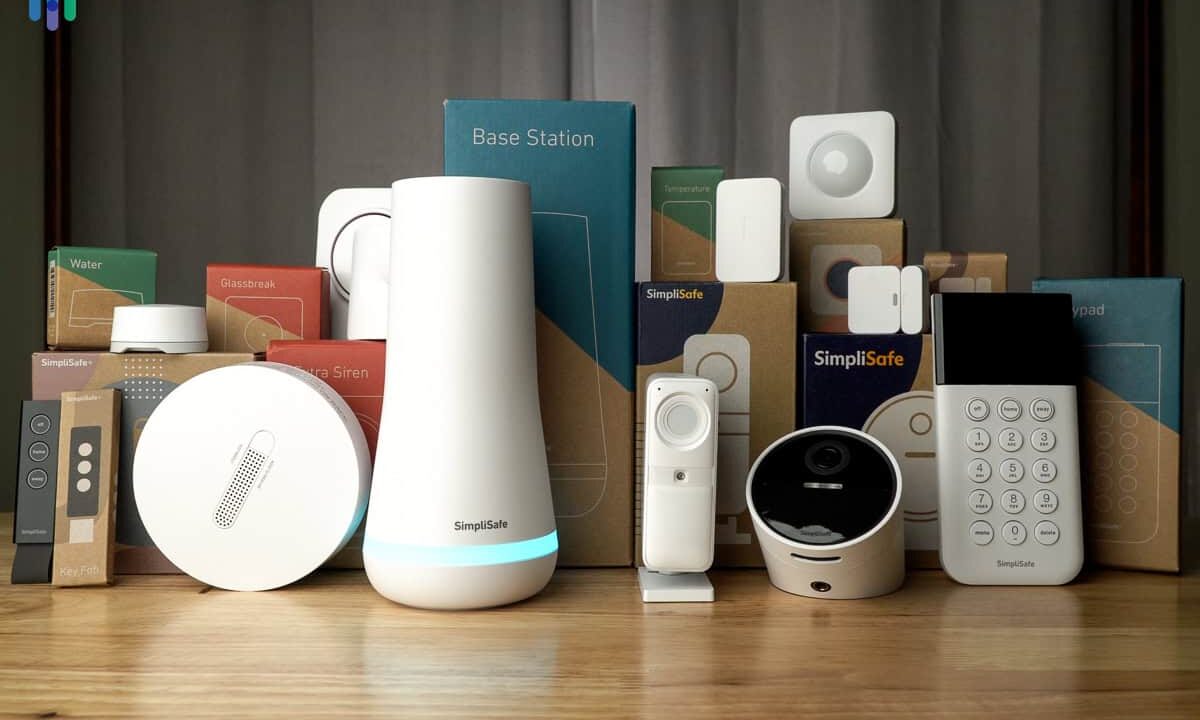Hey there, friend. Imagine this: It’s one of those chaotic mornings where everything goes wrong—coffee spills, traffic snarls, and your inbox is a battlefield. But somehow, you shake it off, crack a smile, and power through the day. That’s the magic of good mental health in action. It’s not about being happy all the time; it’s about having the tools to bounce back. In this article, we’ll dive deep into why prioritizing your mental well-being is a game-changer and share practical ways to promote it. Drawing from my own ups and downs, plus insights from trusted experts, let’s explore how you can build a stronger, more resilient you.
Understanding Mental Health
Mental health isn’t just the absence of illness; it’s a dynamic state that influences every part of our lives. Think of it as the foundation of your emotional house—if it’s shaky, everything else wobbles. Good mental health lets you navigate life’s twists with grace, while poor mental health can turn small hurdles into mountains.
What Is Good Mental Health?
Good mental health means feeling capable of handling stress, maintaining relationships, and enjoying daily activities. It’s about emotional balance, where you can experience joy, sadness, or anger without them overwhelming you. According to the World Health Organization, it’s a state of well-being that helps you realize your potential and contribute to your community.
Signs of Poor Mental Health
You might notice persistent sadness, irritability, or withdrawal from friends as red flags. Other signs include trouble sleeping, changes in appetite, or feeling constantly on edge. If these persist, it’s like your mind sending an SOS—don’t ignore it; addressing them early can prevent bigger issues.
Why Is Good Mental Health Important?
Good mental health is the unsung hero of a fulfilling life, impacting everything from your morning jog to your career ambitions. Without it, even simple tasks feel exhausting, but with it, you unlock resilience and joy. It’s not just personal; society thrives when people are mentally strong.
Impact on Physical Health
Your mind and body are best buddies—what affects one hits the other. Poor mental health can weaken your immune system, raise blood pressure, or lead to chronic conditions like heart disease. On the flip side, good mental health encourages healthy habits that keep you physically fit.
Effects on Relationships
Ever snapped at a loved one because you were stressed? Mental health shapes how we connect, fostering empathy and communication when it’s strong. Struggles here can lead to isolation, but nurturing it builds deeper bonds and support networks.
Boost to Productivity and Success
At work or school, mental clarity drives focus and creativity. Good mental health helps you tackle challenges head-on, leading to better performance and satisfaction. It’s why companies now emphasize wellness programs—happy minds mean productive teams.
Building Resilience Against Life’s Challenges
Life throws curveballs, like job loss or heartbreak. Strong mental health acts as a buffer, helping you adapt and grow. It’s that inner strength that turns setbacks into comebacks, reducing the risk of long-term distress.
Let me share a quick story from my life. A few years back, I hit a rough patch after a family loss. I felt lost, barely sleeping, and avoiding friends. But recognizing the importance of mental health pushed me to seek help—a therapist and daily walks turned things around. It wasn’t easy, but it taught me resilience isn’t about toughness; it’s about care. And hey, adding a bit of humor helped too—like joking that my therapy sessions were cheaper than retail therapy gone wrong.
To illustrate the broader picture, here’s a comparison of life with and without good mental health:
| Aspect | With Good Mental Health | Without Good Mental Health |
|---|---|---|
| Daily Energy | High motivation, steady focus | Fatigue, procrastination |
| Relationships | Strong, supportive connections | Conflicts, isolation |
| Physical Well-Being | Active lifestyle, better immunity | Increased illness, poor habits |
| Stress Management | Quick recovery from setbacks | Overwhelm, anxiety spikes |
This table shows how mental health ripples out, affecting every corner of existence.
How to Promote Good Mental Health
Promoting mental health is like tending a garden—it requires consistent effort but yields beautiful results. Start small, build habits, and remember it’s okay to ask for help. The key is making it part of your routine, turning self-care into second nature.
Daily Habits for Mental Wellness
Incorporate simple routines like journaling or deep breathing to ground yourself. These acts signal to your brain that you’re in control, reducing anxiety over time. Consistency is your ally here—think of it as brushing your teeth for your mind.
The Role of Physical Activity
Exercise isn’t just for muscles; it’s a mood booster thanks to endorphins. Aim for 30 minutes a day, like a brisk walk or yoga session. It clears your head and builds confidence—who knew sweating could be so therapeutic?
Nutrition and Its Link to Mood
What you eat fuels your brain—opt for balanced meals with fruits, veggies, and omega-3s. Avoid excess sugar that crashes your energy; instead, nourish yourself like you’d care for a friend. A healthy gut often means a happier mind.
Prioritizing Quality Sleep
Sleep is your brain’s reset button; aim for 7-9 hours nightly. Create a wind-down routine, ditching screens an hour before bed. Poor sleep amplifies stress, but good rest sharpens focus and emotional balance.
Building Strong Social Connections
Humans are wired for connection—chat with friends, join a club, or volunteer. These interactions release feel-good hormones, combating loneliness. Even a quick call can lift your spirits on tough days.
Practicing Mindfulness and Meditation
Mindfulness keeps you present, reducing rumination on past worries. Try apps like Headspace for guided sessions; it’s like a mini-vacation for your mind. Over time, it enhances emotional regulation and peace.
When to Seek Professional Help
If feelings overwhelm you, therapists or counselors are lifesavers. Resources like the National Institute of Mental Health offer directories—don’t hesitate; it’s a sign of strength. For immediate support, hotlines like the SAMHSA Helpline (1-800-662-HELP) are available.
Now, let’s weigh the pros and cons of common promotion methods:
- Exercise:
- Pros: Free, improves physical health, quick mood lift.
- Cons: Requires motivation, potential for injury if overdone.
- Therapy:
- Pros: Personalized guidance, long-term tools, stigma decreasing.
- Cons: Costly without insurance, time commitment.
- Mindfulness Apps:
- Pros: Convenient, affordable, accessible anytime.
- Cons: Not a substitute for professional help, screen time adds up.
These options vary, so mix and match what fits your life. For transactional folks, best tools include apps like Calm for meditation or MyFitnessPal for tracking habits. Navigational tip: Visit sites like Mayo Clinic’s mental health page for reliable info.
Another personal touch: During my stressful phase, I tried mindfulness. At first, sitting still felt silly—like trying to herd cats in my brain. But persistence paid off; now, it’s my go-to for calm. Add some emotional appeal: Remember, promoting mental health isn’t selfish; it’s how you show up better for those you love.
People Also Ask
Drawing from common Google queries, here are real questions people search about mental health.
What Are the Benefits of Good Mental Health?
It enhances life satisfaction, boosts immunity, and improves relationships. You handle stress better, leading to fewer health issues and more productivity.
How Does Mental Health Affect Physical Health?
Poor mental health can lead to heart problems or weakened immunity, while good mental health promotes exercise and healthy eating, creating a positive cycle.
What Are Simple Ways to Improve Mental Health?
Start with daily walks, balanced meals, and talking to friends. Incorporate gratitude journaling to shift your perspective positively.
Why Is Mental Health Important for Students?
It aids concentration, reduces anxiety, and supports academic success. Students with strong mental health are more resilient to pressures like exams.
Can Poor Mental Health Be Prevented?
Yes, through lifestyle changes and early intervention. Building habits like exercise and social support acts as prevention.
FAQ
What is the definition of good mental health?
Good mental health is a state where you can cope with life’s stresses, work productively, and contribute to your community. It’s about emotional, psychological, and social well-being.
How can I promote mental health at work?
Encourage breaks, open discussions, and wellness programs. Tools like employee assistance programs (EAPs) provide support—check resources from the CDC for tips.
What are the best apps for mental health promotion?
Apps like Headspace for meditation, Moodpath for tracking emotions, and Calm for sleep stories are top-rated. They’re user-friendly and backed by science.
Why does mental health matter in relationships?
It fosters better communication and empathy, reducing conflicts. Strong mental health helps you support partners during tough times.
Where can I find free mental health resources?
Organizations like the Mental Health Foundation offer free guides online. In the US, NIMH provides helplines and info—visit their site for details.
In wrapping up, good mental health isn’t a luxury—it’s essential for thriving. From boosting your physical vitality to enriching relationships, its importance can’t be overstated. By adopting habits like exercise, mindfulness, and seeking help when needed, you’re investing in a brighter future. Remember my story? Small steps led to big changes. So, take that first step today—your mind will thank you. For more on wellness, check our related article on stress management. Stay well, and keep the conversation going.





